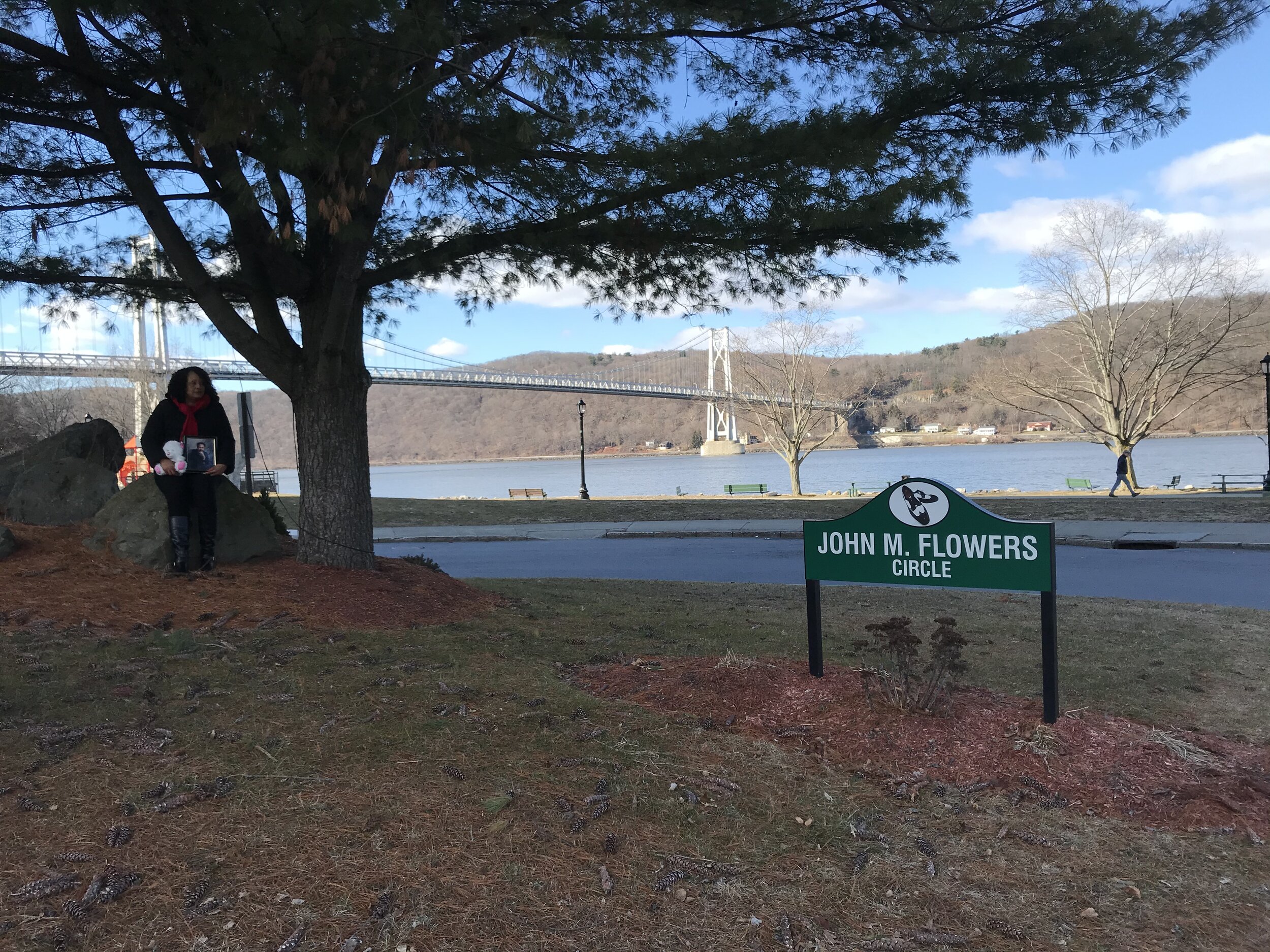First Issue of The Crisis: A Record of the Darker Races, November 1910. New York: NAACP, 1910.
BY: JACQUELINE QIU, 2021 WINTER COLLABORATOR AT POWER IN PLACE
The years between 1880 and 1890 yielded immense progress for achieving the reality of female enfranchisement within a historically male-dominated society. Suffragettes, especially those of color, were able to challenge patriarchal institutions, such as the denial of women’s suffrage, through influential actions based on philosophies of gender, racial, and social justice. The conjoint nature of this activism not only cultivated hope in the suffrage movement for women of color, but also in the greater movement to assert rights that are denied on the basis of one's identity. These rights were traditionally marginalized in a socioeconomic and political context and held as the standard in both cultural, social, and legal norms. Advocating for suffrage, for these women of color, is synonymous with an awareness for intersectionality of identity. The enfranchisement of women would not be truly successful if it did not account for deconstructing structural inequalities that are based in an interconnected identity of race, gender, and other forms of identity. These brave suffragette women of color tackled systemic manners of oppression in American society, such as the denial of female enfranchisement and racism, by using their unique identities to their advantage.
Frances Ellen Watkins Harper.
Frances Ellen Watkins Harper (1825-1911), as a prolific black poet, writer, and journalist that advocated for the suffrage, and subsequent social equality, of black women. Her commitment to this conjoint gender and racial justice first began with helping slaves escape through the Underground Railroad and publishing anti-slavery journalistic works. Later, during the American Reconstruction Era, she was a prominent activist for civil rights, women’s suffrage, and equitable education opportunities for black citizens. Her advocacy was mainly done through her high status in the literary and journalism world; she is known as the “mother of African American journalism,” and one of the first black writers to popularize Africa American protest poetry. For example, her short story, The Two Offers, was the first short story published by an African American writer. Her ideals of equality and representation in literature extended into her contributions in society; Harper was a co-founder and Vice President of the National Association of Colored Women and member of the National American Woman Suffrage Association. Additionally, she was the superintendent of the Colored Section of Philadelphia and Pennsylvania Women’s Christian Temperance Union. Harper, as an extremely accomplished writer and activist, leaves an indelible mark on the history of suffragettes of color.
Harriet Purvis, Jr. , circa 1874.
Harriet (Hattie) Purvis, Jr. (1839-1904) was also an active supporter of women’s suffrage in the face of societal challenges. While her views on female enfranchisement are relatively unknown, she represented the second generation of black women suffragettes. She was active in the Pennsylvania Woman Suffrage Association and a member of its executive committee in 1884. Furthemore, between 1883-1900, she was also a notable delegate for the National American Woman Suffrage Association due to her work in the state of Pennsylvania. She was also involved, as a superintendent of work among Colored People for the Women’s Christian Temperance Union. Purvis, Jr. is an important figure who fought for women’s suffrage, especially for black women, that has been hidden in the corners of history. Her contributions, especially those in Pennsylvania, are intrinsically in need of recognition.
Getrude Bustill Mossell.
Getrude Bustill Mosell (1855-1948) was an active journalist that used her platform to highlight the severity of achieving women’s suffrage, especially for women of color. As a journalist, she wrote about these issues of gender and racial justice in The New York Freedom, one of T. Thomas Fortune’s newspapers. Her first publication, titled “Women’s Suffrage,” in 1865 encouraged women to read about the history of the suffrage movement and previous articles of women’s rights. Encouraging a black, female audience, Mosell used the press as an effective way to appeal and inspire black women to contribute to the suffragist movement. In addition, due to her high journalistic status, she was able to relate to middle class views of housewives who were feminists and encourage them to advocate for female enfranchisement. Mosell, through the black press, sought to appeal to demographics that were relational to her intersectional identity of a black female journalist, in order to garner more support for the suffragist movement.
Josephine St. Pierre Ruffin, 1902.
Jospehine St. Pierre Ruffin (1842-1924) was a major figure in the advancement of women’s enfranchisement in the state of Massachusetts. Also beginning as a journalist, she joined in the work of the Massachusetts Suffrage Association in 1875 and later became affiliated with the American Woman Suffrage Association. In fact, in 1895, she convened the first conference of the National Federation of Afro-American Women, which was probably the first national organization of black women, in Boston. Ruffin was an unequivocal leader in the black women’s club movement, which united black women under the cause of female enfranchisement. She wrote in her black woman’s newspaper, The Women’s Era, utilizing her previous journalistic experience for the progress of women’s rights. In Massachusetts, she urged white women to join with black women to advance the suffragist cause. However, her efforts to unite black and white women’s clubs (and thus combat racial inequalities) were not extremely successful; she experienced discrimination at the Convetion of General Federation of Women’s Clubs in 1900. Nevertheless, Ruffin persisted in her cause of combatting societal institutions such as female disenfranchisement, and realizing the deconstruction of gender and racial injustices.
Josephine Bruce.
Josephine Bruce (1853-1923), was a prominent activist for women’s rights and suffragists in the Washington, D.C. area. With her husband, Representative Blanche K. Bruce, the first U.S. Senator from Mississippi during the Reconstruction Era, Bruce’s influence in the D.C. area was extremely noticeable and impactful. She was a charter member of the Colored Women’s League of D.C. and helped organize the National Organization of Afro-American Women in 1894. Moreover, she headed over the national executive committee of the National Association of Colored Women and was the editor of its publication, Notes. Drawing on journalism as an effective medium of advocating for the necessity of obtaining the right to vote for women (especially of color), Bruce often published articles in Crisis Magazine and In the Voice of the Negro. She also served as the editor of the magazine for the National Association for the Advancement of Colored People, after becoming involved in the organization. Concerned by the evident inequality for women of color in American society, Bruce took action, writing for the necessity of women’s rights and suffrage, and reached a far audience due to her high status in our nation’s capital.
Anna J. Cooper, Oberlin College.
Anna J. Cooper (1858-1964), as part of a rich tradition of black writers and intellectuals in the Washington, D.C. area, was a fervent advocate for black feminism and self determination within the women’s suffrage movement. As teacher and principal at the famous M. Street High School in Washington D.C., she became an esteemed clubwoman and social activist who was greatly admired for her belief that the status of black women was central to the progress of the nation. With her influence in the nation’s capital, she also served as a mentor for other suffrage activists, such as Angelina Grimke and Nannie Helen Burroughs. Furthermore, her book, A Voice in the South in 1882, promotes the notion that black women could empower themselves, and have innate capacities for self determination, through education and social uplift. Cooper, with her high status as a writer, used her platform to highlight the necessity of guaranteeing a future in American society where black women were enfranchised and inherently valued.
Susette La Flasche Tibbles (“Bright Eyes”) Courtesy of Nebraska State Historical Society.
Susette La Flesche Tibbles (1854-1903), or “Bright Eyes,” was a prominent Native American activist and suffragist that advocated for Native American rights in the face of barriers created by U.S. federal policy. She is best known for embarking on a series of nationwide and international speaking tours, which were widely successful, to document the adversity faced by Native Americans in American society. Her wish to promote equality for Native Americans in society also extended to the socio-political realm, as she became a staunch advocate for women’s suffrage, especially that of Native American women. Tibbles also served as an expert witness and interpreter in court for Native Americans who wished to sue the government due to various types of grievances. In fact, she served as an interpreter for Standing Bear, who sued the federal government in 1879 and acquired a ruling that allowed Native Americans to choose where they want to live. Tibble’s testimonies about the lack of Native American rights in front of Congress eventually led to the landmark 1887 Dawes Act. “Bright Eyes” was a notable advocate for an intersectional equality of gender, in relation to female enfranchisement, and socio-political Native American rights.
Adella Hunt Logan.
Adella Hunt Logan (1863-1915), as a professor at Tuskegee Institute, which was headed by Booker T. Washington, made philosophical contributions to rationalizing why black women deserve the right to vote. As a charter member of the Tuskegee Women’s Club and lecturer for conferences at the National Association for the Advancement of Colored People, she combined white suffrage rationale with black women’s suffrage to amplify its effects and overall message. This philosophy gained traction in the black women’s suffrage movement, especially as Logan published these ideas in prominent magazines such as Colored American and Crisis. Attacking anti-suffrage movements, she augmented her justification for female enfranchisement with an unequivocally potent rationale; the right to vote for black women would be a undeniable form of protection against rape and sexual abuse for them. Gaining national attention, her arguments for the enfranchisement of black women included core tenets form Mary Ann Shadd Cady, Frances E.W. Harper, and Sojourner Truth. Additionally, she staged lantern slide nights and organized suffrage parades for women’s club members at the beginning of President William McKinely’s re-election parade. Logan used her unique intellectual basis of activism to the advantage of advancing the cause of suffrage, especially for African American women.
The movement of women’s suffrage was not solely for the purpose of obtaining the right to vote; it was a greater mission for achieving equality and recognition for their valuable character and contributions as women of color in a society that had acted often against their best interests. From the decade of 1880-1890, suffragette women persisted in their efforts to achieve this comprehensive equality for the present and future generations.
References:
Rothberg, Emma.“Susette La Flesche Tibbles (“Bright Eyes”).” National Women’s History Museum. 2020. https://www.womenshistory.org/education-resources/biographies/susette-la-flesche-tibbles-bright-eyes
Mayo, Edith. “African American Women Leaders in the Suffrage Movement.” Suffragist Memorial. 2020. https://suffragistmemorial.org/african-american-women-leaders-in-the-suffrage-movement/
Jacqueline Qiu is a junior at Middlebury College, double majoring in French and Political Science. She is passionate about humanitarianism, women in politics, mental health awareness and advocacy, and French language and literature. On campus, she is the Co-President of the French club and Active Minds Middlebury.















